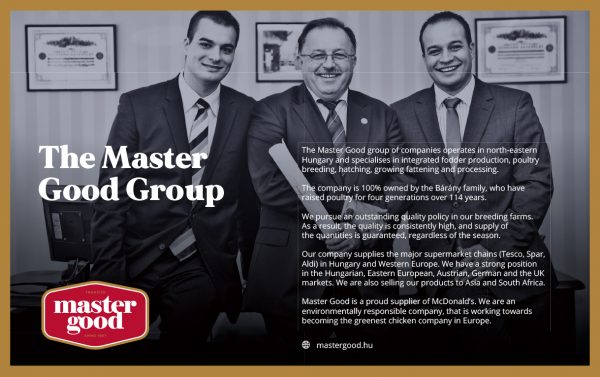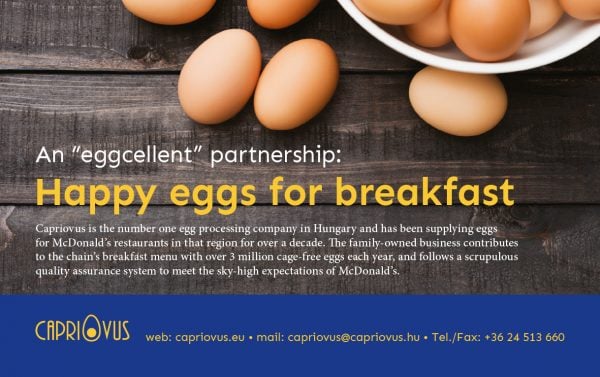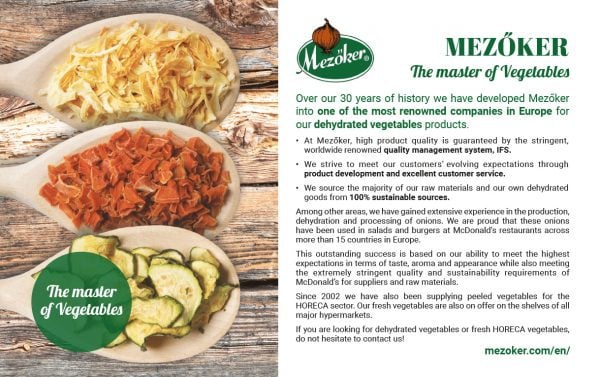While it might not have been the best of times to move into a new senior role, Zsolt Égi is nothing if not positive and optimistic for the future. He was appointed Managing Director of Progress Restaurant Chain LLC, the Developmental Licensee Partner of McDonald’s in Hungary in March 2020, as the pandemic took hold, and his country’s hospitality sector was set on course for a €1.2 billion contraction.
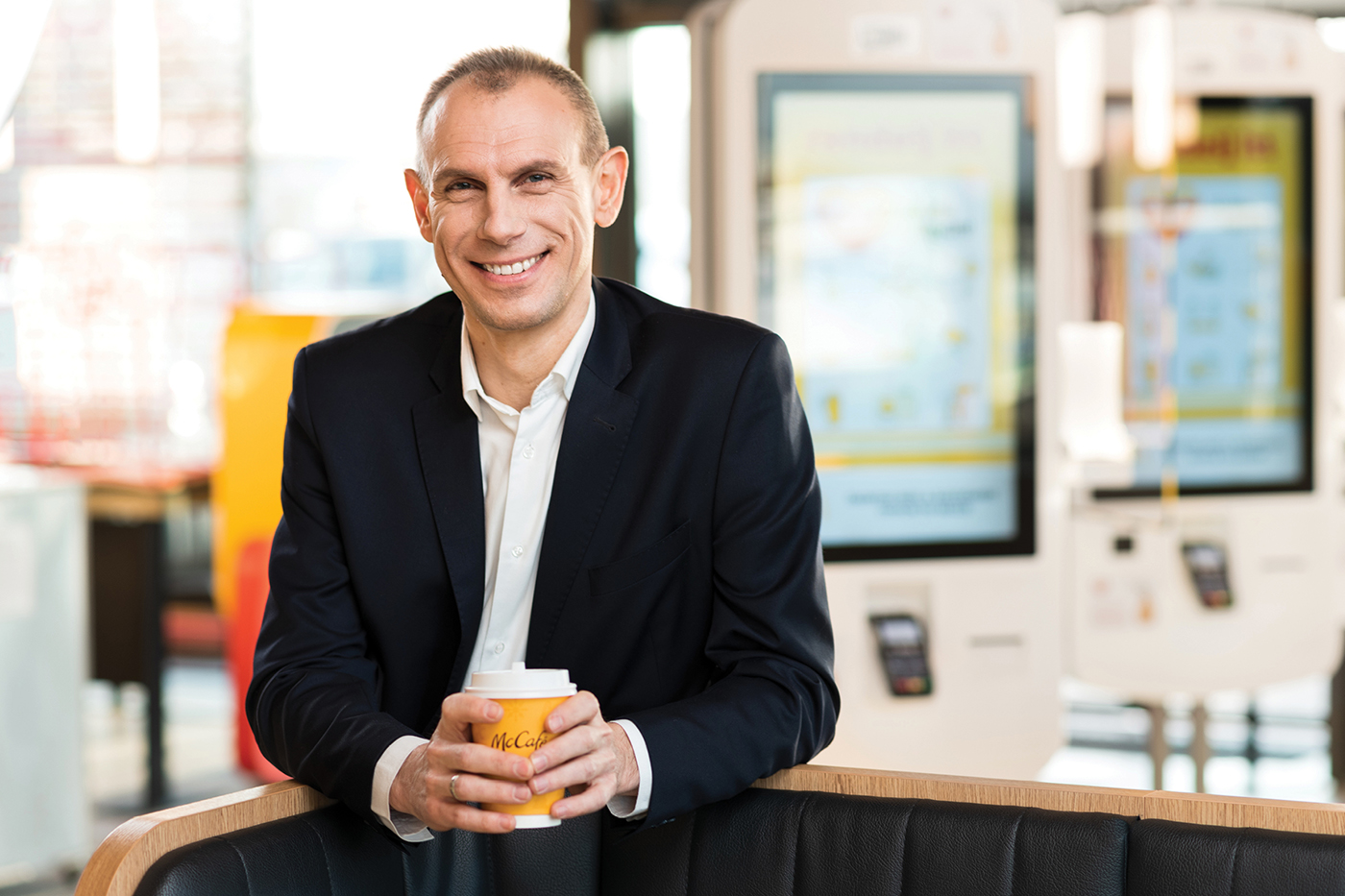
“Last year was quite challenging on the one hand,” he says. “On the other, it provided really good practise for improvement and team-building. New challenges are always coming, which keeps us on our toes.”
Over the past couple of years, change and new challenges have very much been standard practice at McDonald’s in Hungary. February 2019 saw a share sale and purchase agreement between Sándor Scheer, Founder and CEO of Hungarian construction firm Market Épító´Zrt., and the McDonald’s Corporation, which handed Mr Scheer 100% ownership.
The imperative, then and now, is to move forward. The board was extended to bring on additional expertise and head office teams enlarged to ensure the necessary resources.
Core elements include investing in new restaurants (four opened in 2020), upgrading the customer experience with the aid of technology, in addition to building a stronger brand by supporting its suppliers, employees and local communities.
McDonald’s was established in Hungary in 1988, and has 93 restaurants, with a presence in every county. Roughly half are operated by Mr Scheer and the company, while the remainder are run by 17 local franchisees.
The payroll amounts to 6,700 employees including a little more than 3,000 students, and the aim is to create 3,000 new jobs in the next two years. In a normal year, the company serves some 80 million people.
COVID-19 made an exception of 2020, however, prompting a creative approach to keeping the customers happy and the business afloat, while convivial restaurant dining went on hold.
Significant contributions
Zsolt has been with McDonald’s for the long-term. He joined as a new graduate and worked through various roles to become Director of Operations. Over the past 10 years his responsibilities have gradually expanded, giving him considerable experience and enabling him to contribute significantly to the development of the company’s growth strategy.
I truly appreciate the efforts of the people working in the restaurants.
He is a people person and is quick to mention the team at every level. “I truly appreciate the efforts of the people working in the restaurants, and I have quite a lot of friends among the store managers. They are doing an excellent job,” he shares.
“We need to be very flexible, adaptable and resilient,” he insists. “Leadership is about openness. I encourage my people to look for new ideas, new ways of doing things and big change in general.” Innovation, technology, sustainability, care and compassion are all part of this.
“We set the objective to achieve the largest, most dynamic growth in our history in the coming years. In the first year of the pandemic we opened four new Drive-Thru restaurants. In the next three years, we will continue to significantly increase the number of restaurants and modernise all of our 93 existing stores.”
Zsolt goes on to say that we are in the midst of a digital revolution. “More and more people are becoming digital natives, this is now a kind of customer requirement. They are also increasingly concerned about health and safety, so they require high food safety standards, special care and a unique way of service. That’s why digital technology and innovation are really crucial for us.”
Experience of the future
One way that McDonald’s in Hungary is looking to upgrade the customer experience is by converting restaurants to its ‘Experience of the Future’ concept. This personalises ordering, enabling customers to choose their meals at their own pace through a dedicated touchscreen, self-order kiosk.
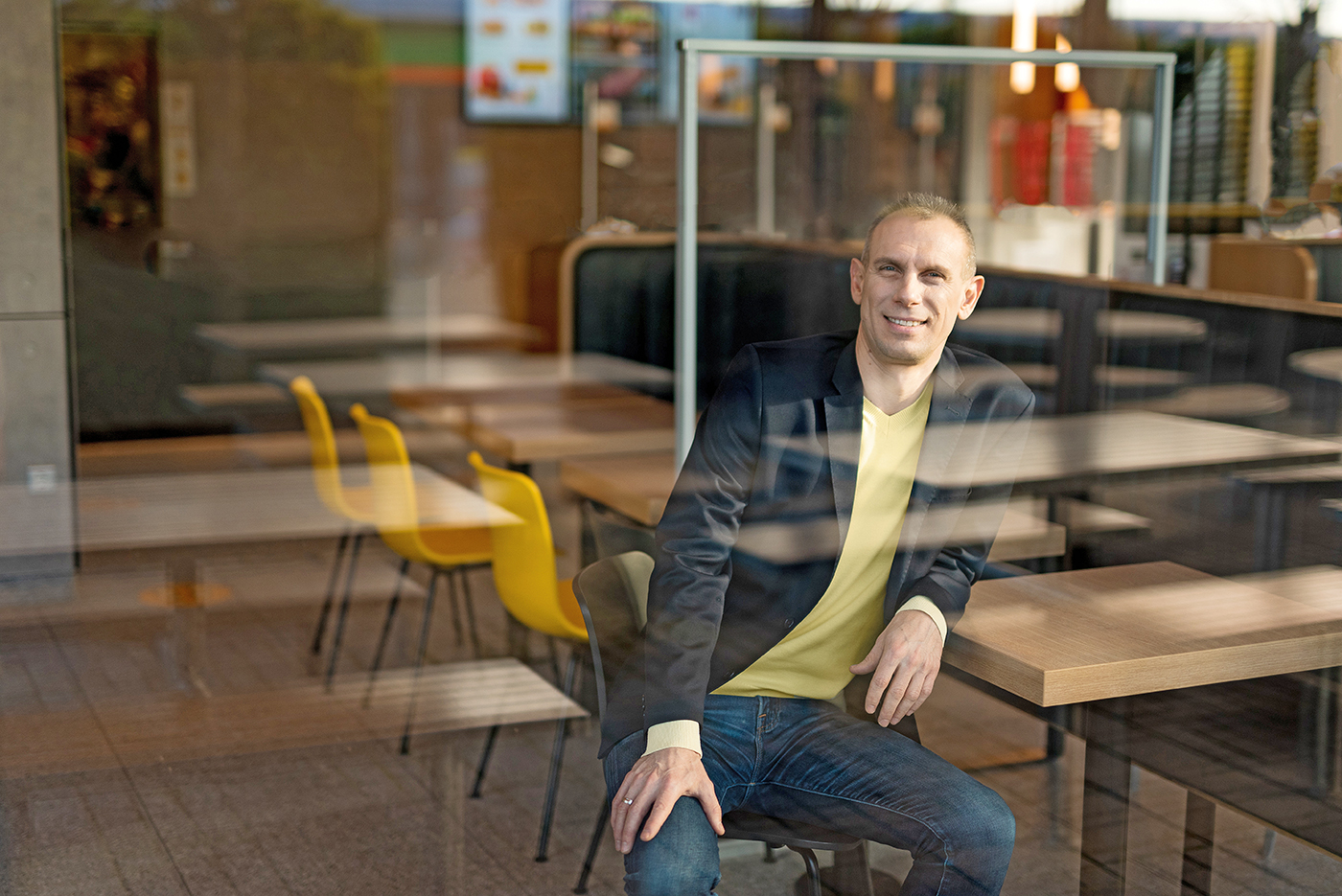
The company is also aiming to develop order picking and capacity to the drive-thru service. Dual drive enhancements (where orders can be taken from more than one customer at a time), the expansion of special order areas, and enhanced procedures are being implemented to reduce transit time and increase the number of cars serviced.
Contactless is available in restaurants and the aim is to give rewards and offers through a loyalty program that is currently under development on the company’s existing mobile app.
Another enhancement is that customers can choose how they pick up their orders. If the lobbies are operating at full speed, they can take a seat, knowing there is table service for them. They don’t need to queue in front of the registers as the technology is there to enable employees to find them.
Delivery to customers began in 2019 and is now available countrywide. From 2021, McDonald’s in Hungary took on a second delivery service company that is known for good customer service with exceptional help desk support, a quality that fits with the McDonald’s strategy.
Wide-range sustainability focus
Zsolt maintains that there’s a lot more to sustainability than just the environmental piece, important as that is. “First and foremost is the food and supply chain; then comes good employment practices, inclusion and empowerment for our employees.”
We provide an inclusive environment for all, and are very proud of being a first employer of young people.
Connection to communities and engaging on what is important to them come next, followed by promoting sustainable solutions and customer choices. The company has a strong cohort of local suppliers, delivering key ingredients like chicken, tomatoes, salad and eggs, so that what’s eaten in its restaurants is 35% local produce.
And it is impressive that 50% of the suppliers have worked with McDonald’s in Hungary for more than 20 years. Suppliers are encouraged to strive for continuous development through the McDonald’s Agricultural Assurance Program, which assists farmers in improving food safety, sustainable practices and ethical farming.
Its positive impact on local agriculture includes helping farmers to sell to the company’s markets in nearby countries. Hungary participates in the McDonald’s Flagship Farm global network, which promotes sustainable practices and shares them within and outside the business’s supply chain.
The first broiler farm selected in the Flagship Farm program is operated by one of its key local suppliers, the 100% Hungarianowned Master Good.
Inclusion and empowerment
Zsolt also sees its strategy of increasing employment as another sustainability initiative. “We provide an inclusive environment for all, and are very proud of being a first employer of young people, especially in parts of Hungary where there is high unemployment,” he says.
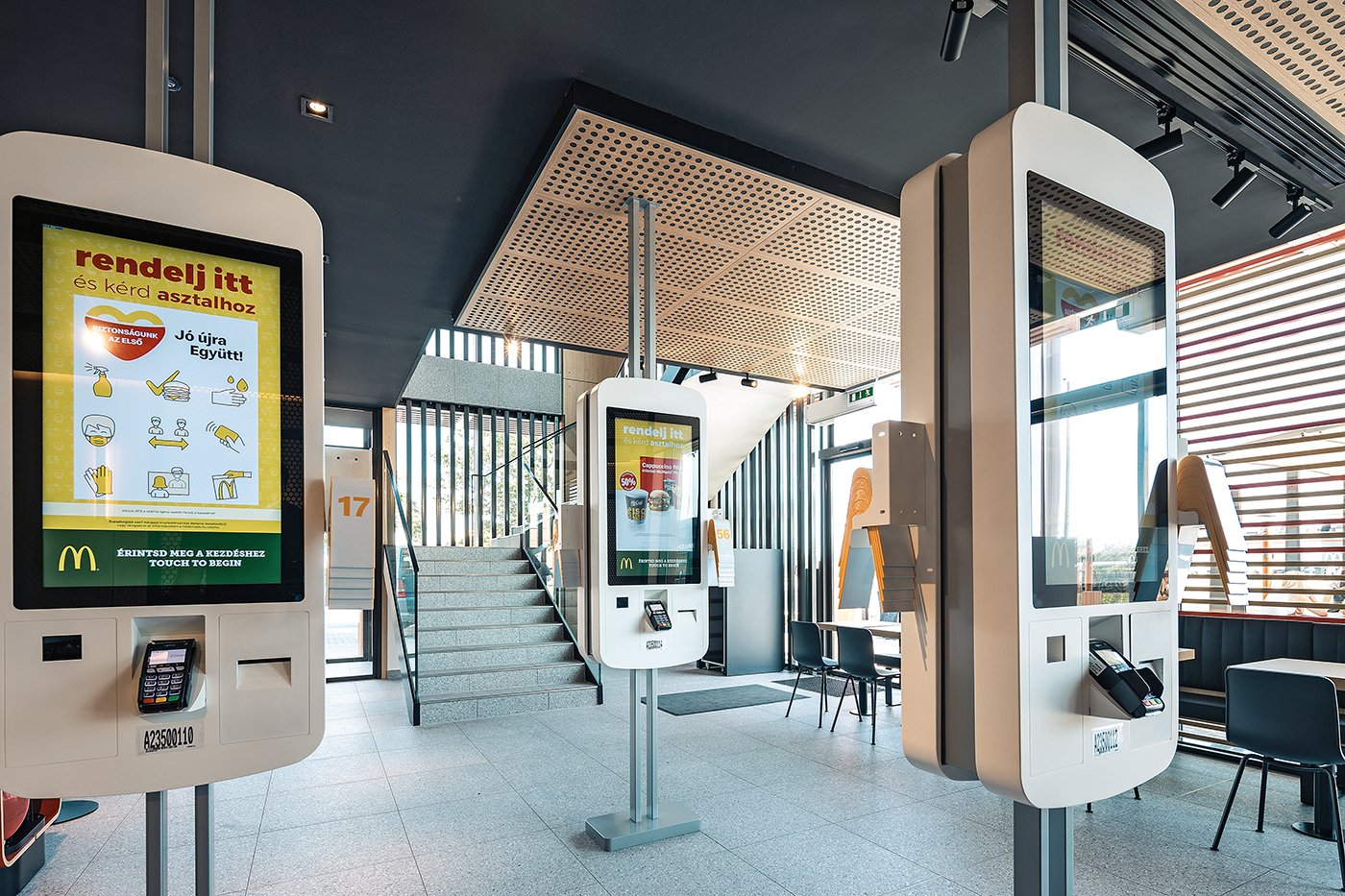
“They get a great opportunity to grow and improve their skills through their jobs. It’s about inclusion and then empowerment.” The other side of the sustainability coin is focusing on being able to operate restaurants in an environmentally friendly manner.
That means minimising waste and CO2 emissions, and recycling as much as possible. The waste management system that the company instituted more than 20 years ago is so efficient that it now outperforms the national average, with 80% of the waste generated being recycled.
This waste includes paper products, cooking oil and food leftovers, which are used to make biodiesel (used cooking oil), biogas as well as to generate electricity and heat. Every opportunity is taken to be energy efficient.
The introduction of the Experience of the Future will help, along with LED lighting in the restaurants and energy-efficient watering of the gardens.
“We started to measure CO2 emissions in our restaurants and local supply chain, and reduced them by almost 15% between 2012 and 2017,” Zsolt explains. The key was to work with suppliers and optimise road transport usage for goods deliveries.
Feed and foster communities
As an energetic family man (he is father to three young children), Zsolt is proud of both the way the company is supporting the community with its charity and its promotion of active lifestyles.
As a keen and competitive long-distance runner, with the personal target of competing in what is a 65-kilometre competition later this year, he also feels the need to promote exercise. The emphasis has been on cycling rather than running, however.
More than 10 years ago, McDonald’s in Hungary launched BringaMánia – Bike Mania in English – which offers a variety of resources and events to cyclists. More than 90,000 people have participated in this initiative, with some completing the flagship event, a ride around the 206-kilometre perimeter of Hungary’s beautiful Lake Balaton, the largest lake in Central Europe.
Importantly, Zsolt is keen to share that McDonald’s in Hungary is the primary supporter of Ronald McDonald House Charities, an organisation that helps to keep families together when a child is seriously ill.
Clearly, people are at the heart of the company’s success in Hungary and Zsolt’s ambitious multifaceted strategy for the future. “Our mission is to make delicious feel-good moments easy for everyone – our customers, our employees and our suppliers,” he says.
With its purpose to feed and foster communities, and its strategy firmly focused on technology, quality, sustainability and growth as it is, it’s a good business to be in.
Proudly supported by:
